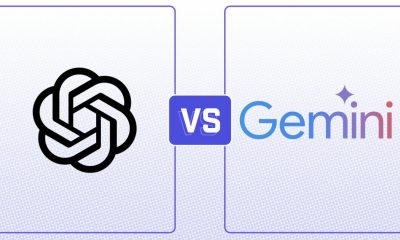Technology
Mark Zuckerberg says Facebook considered selling data because of Apple

 Getty Images
Getty Images
- Explosive documents show that in 2012 Facebook
internally considered charging developers for access to its
platform, which enables them to see and collect user data. - In a public post, Facebook CEO Mark Zuckerberg said the
discussions were because Apple’s
restrictions on what iPhone developers can do threatened its
business model.
Facebook CEO Mark Zuckerberg has issued a response to
a large cache of sensitive Facebook documents published by
the British Parliament on Wednesday.
In the documents, which include internal presentations, emails,
and sensitive strategy memos, Facebook leaders are seen
discussing whether Facebook should charge other companies for
access to its developer platform, which allowed apps to access
Facebook friends, likes, and other data.
Many of the documents are from 2012 and earlier, and Facebook
ended up deciding not to charge third-party developers, but the
Parliament documents are among the first first public evidence
that the social networking giant considered selling access to its
trove of user data.
In a lengthy, confrontational post on Facebook, Zuckerberg said
that many of the discussions were prompted by Apple’s tight
restrictions on what third-party apps can do on iPhones and
iPads.
“Back when the main way people used Facebook was on computers, we
supported the platform by showing ads next to developers’ apps on
our website,” Zuckerberg wrote. “But on mobile, Apple’s policies
prevent us from letting apps run within Facebook and apps take
the whole screen anyway, so we needed a new model to support this
platform to let people log in and connect with other apps.”
“Like any organization, we had a lot of internal discussion and
people raised different ideas,” he continued.
Of course, Apple’s iPhone is only one of two major options for
smartphone users. Many more people use Android, which doesn’t
restrict app developers as sharply as Apple’s iOS does.
The documents revealed by Parliament suggest that Facebook took
advantage of relatively lax security features on Android to
obtain call log data from users to “improve things like [People
You May Know], coefficient calculation, and feed ranking.”
2) Facebook engineered ways to access user’s call history w/o alerting users:
Team considered access to call history considered ‘high PR risk’ but ‘growth team will charge ahead’. @Facebook created upgrade path to access data w/o subjecting users to Android permissions dialogue. pic.twitter.com/Oth6WF2oVa
— ashkan soltani (@ashk4n) December 5, 2018
The British Parliament published the documents as part of an
inquiry into the Cambridge Analytica scandal after seizing them
from an entrepreneur who had received the internal Facebook trove
as part of a lawsuit against the social networking giant.
Apple CEO Tim Cook and Zuckerberg have been feuding over data and
user privacy for years, despite the fact that the two tech giants
are Silicon Valley neighbors with many of the same users. Last
month, Facebook
confirmed the conflict in a official company statement.
The full text of Zuckerberg’s post is reproduced below:
This week a British Parliament committee published some internal
Facebook emails, which mostly include internal discussions
leading up to changes we made to our developer platform to shut
down abusive apps in 2014-2015. Since these emails were only part
of our discussions, I want to share some more context around the
decisions we made.
We launched the Facebook Platform in 2007 with the idea that more
apps should be social. For example, your calendar should show
your friends’ birthdays and your address book should have your
friends’ photos. Many new companies and great experiences were
built on this platform, but at the same time, some developers
built shady apps that abused people’s data. In 2014, to prevent
abusive apps, we announced that we were changing the entire
platform to dramatically limit the data apps could access.
This change meant that a lot of sketchy apps — like the quiz app
that sold data to Cambridge Analytica — could no longer operate
on our platform. Some of the developers whose sketchy apps were
kicked off our platform sued us to reverse the change and give
them more access to people’s data. We’re confident this change
was the right thing to do and that we’ll win these lawsuits.
At the same time as we were focusing on preventing abusive apps,
we also faced another issue with our platform — making it
economically sustainable as we transitioned from desktop to
mobile. Running a development platform is expensive and we need
to support it. Back when the main way people used Facebook was on
computers, we supported the platform by showing ads next to
developers’ apps on our website. But on mobile, Apple’s policies
prevent us from letting apps run within Facebook and apps take
the whole screen anyway, so we needed a new model to support this
platform to let people log in and connect with other apps.
Like any organization, we had a lot of internal discussion and
people raised different ideas. Ultimately, we decided on a model
where we continued to provide the developer platform for free and
developers could choose to buy ads if they wanted. This model has
worked well. Other ideas we considered but decided against
included charging developers for usage of our platform, similar
to how developers pay to use Amazon AWS or Google Cloud. To be
clear, that’s different from selling people’s data. We’ve never
sold anyone’s data.
Of course, we don’t let everyone develop on our platform. I
mentioned above that we blocked a lot of sketchy apps. We also
didn’t allow developers to use our platform to replicate our
functionality or grow their services virally in a way that
creates little value for people on Facebook. We restricted a
number of these apps, and for others we asked developers to
provide easy ways for people to share their content outside of
their apps and to Facebook if they wanted.
We’ve focused on preventing abusive apps for years, and that was
the main purpose of this major platform change starting in 2014.
In fact, this was the change required to prevent the situation
with Cambridge Analytica. While we made this change several years
ago, if we had only done it a year sooner we could have prevented
that situation completely.
I understand there is a lot of scrutiny on how we run our
systems. That’s healthy given the vast number of people who use
our services around the world, and it is right that we are
constantly asked to explain what we do. But it’s also important
that the coverage of what we do — including the explanation of
these internal documents — doesn’t misrepresent our actions or
motives. This was an important change to protect our community,
and it achieved its goal.
-

 Business7 days ago
Business7 days agoFormer top SpaceX exec Tom Ochinero sets up new VC firm, filings reveal
-

 Business7 days ago
Business7 days agoTesla layoffs hit high performers, some departments slashed, sources say
-

 Entertainment7 days ago
Entertainment7 days agoChatGPT vs. Gemini: Which AI chatbot won our 5-round match?
-

 Business5 days ago
Business5 days agoConsumer Financial Protection Bureau fines BloomTech for false claims
-

 Business4 days ago
Business4 days agoLangdock raises $3M with General Catalyst to help businesses avoid vendor lock-in with LLMs
-

 Entertainment4 days ago
Entertainment4 days agoWhat Robert Durst did: Everything to know ahead of ‘The Jinx: Part 2’
-

 Business6 days ago
Business6 days agoKlarna credit card launches in the US as Swedish fintech grows its market presence
-

 Entertainment7 days ago
Entertainment7 days agoHow to watch ‘The Sympathizer’: Release date and streaming deals





















